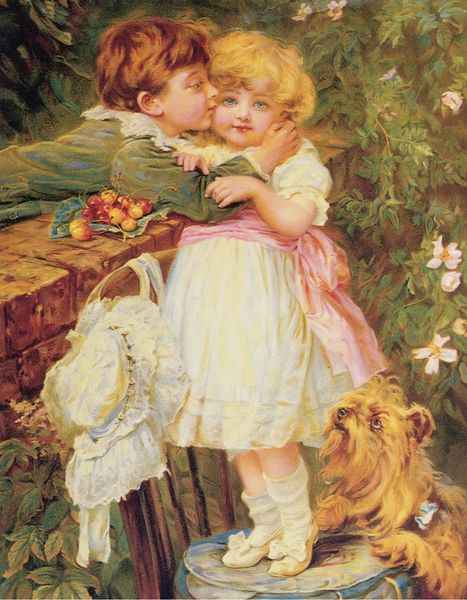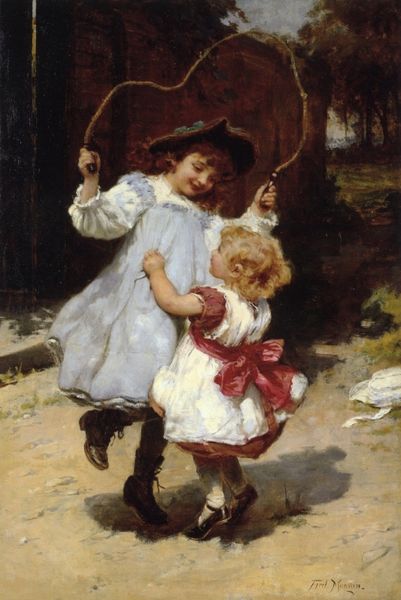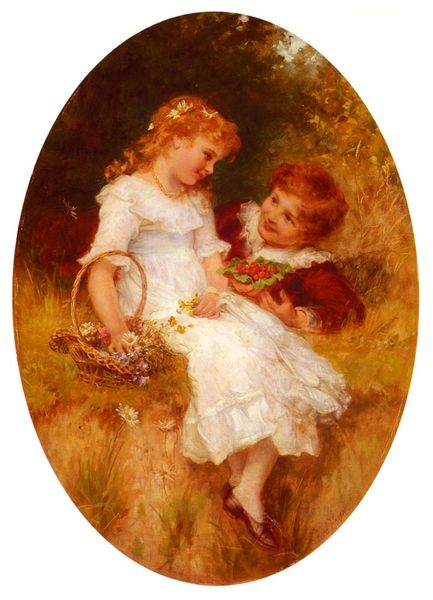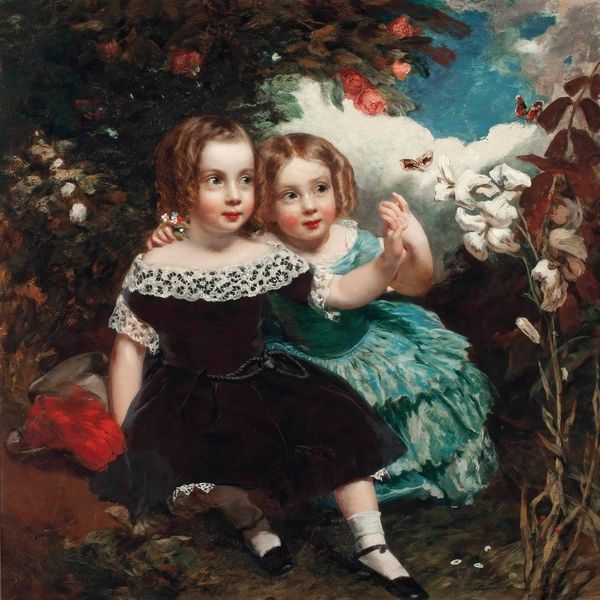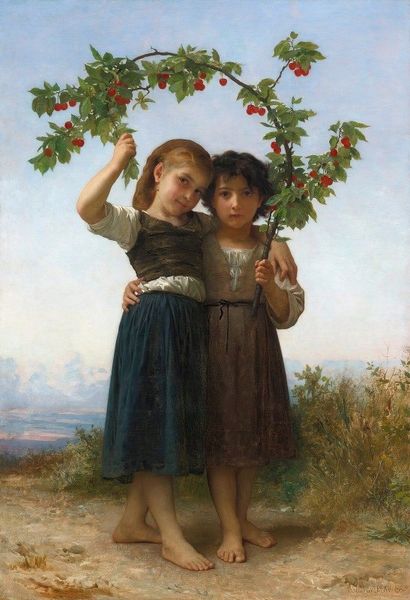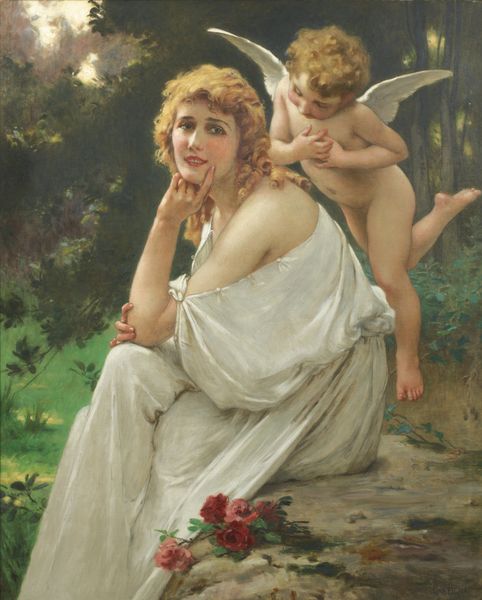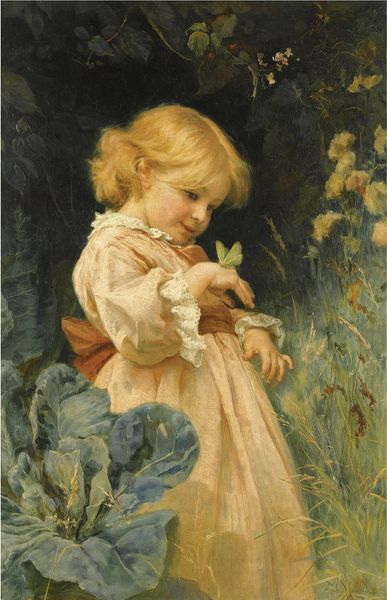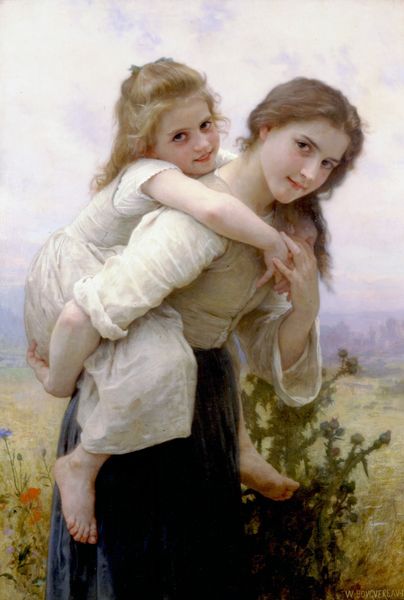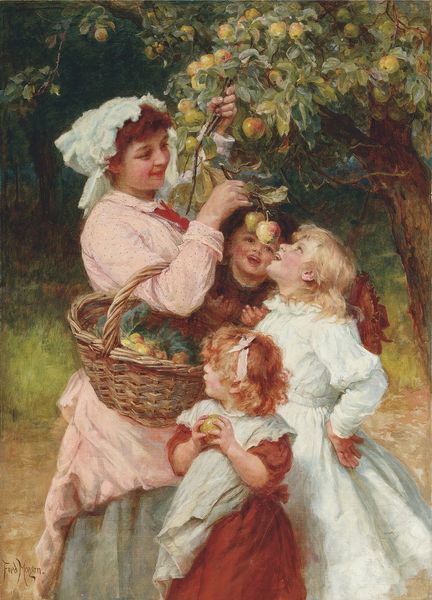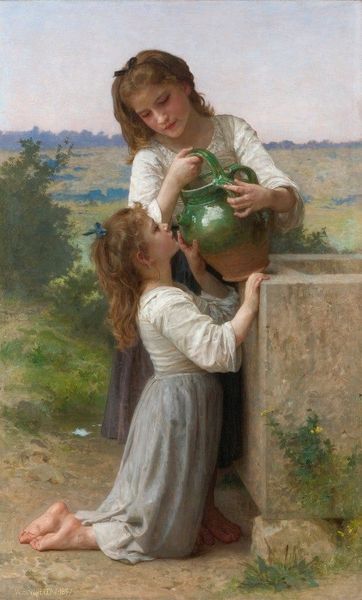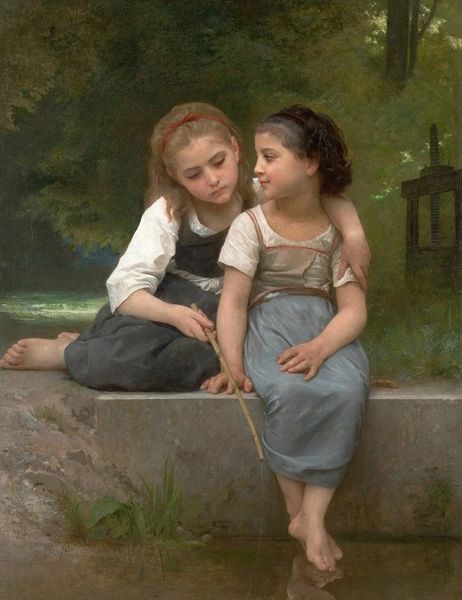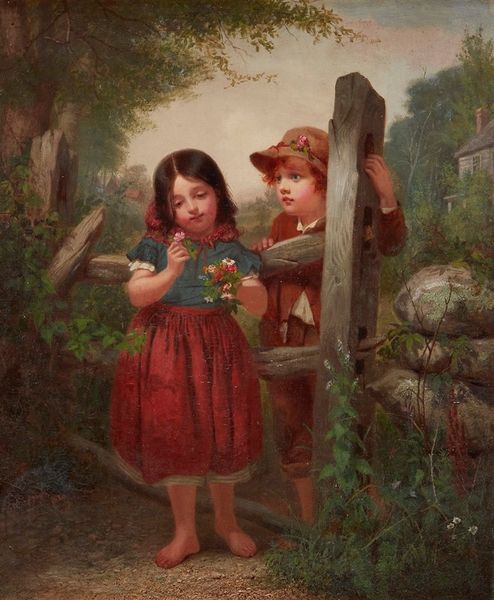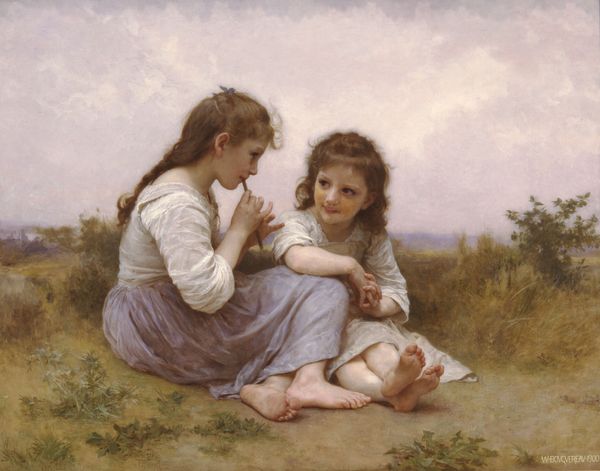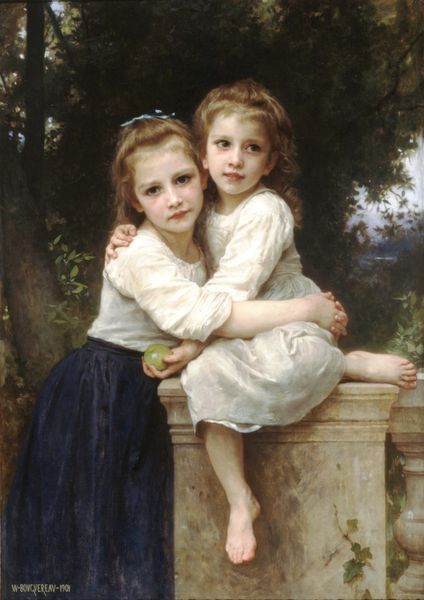
painting, plein-air
#
portrait
#
painting
#
plein-air
#
landscape
#
figuration
#
romanticism
#
genre-painting
Copyright: Public domain
Editor: Here we have "Nutting," a painting by Frederick Morgan, believed to be from the late 19th century. The scene is full of light, capturing two children foraging for nuts. I'm struck by how it idealizes childhood and rural life. How do you interpret this work within its historical context? Curator: Well, it’s vital to consider the socio-political currents shaping artistic production and reception in that period. These genre scenes of happy childhood were incredibly popular. Why? Because they affirmed certain Victorian values, such as innocence, domesticity, and a nostalgic view of rural existence at a time of rapid industrialization. Think about it - this imagery subtly reinforces ideas about class and gender roles too. Does that ring true for you? Editor: I can definitely see that. It seems like a deliberate contrast to the urban realities for many at the time. So, this idealized depiction served a purpose? Curator: Exactly. Art doesn’t exist in a vacuum. The emerging middle class consumed images that reassured them about the order of things, a sort of visual balm. The museum was gaining prominence, art was more accessible, shaping public tastes and perceptions through carefully curated displays that would reinforce accepted beliefs of morality, progress, and civilization itself. Did the painting make you think of that? Editor: Not initially, but it completely shifts my perspective now. I was focused on the idyllic scene, missing the larger narrative about social control and aspirations. It really illustrates how art is deeply entangled with power structures. Curator: Precisely. By unpacking these layers, we see art's function not just as decoration, but as a cultural tool reflecting and shaping society. It helps to remember to examine the role of institutions, the dynamics of patronage, and broader ideological forces at play to reveal meaning, that otherwise, we will often miss. Editor: I'll certainly keep that in mind from now on. Thank you!
Comments
No comments
Be the first to comment and join the conversation on the ultimate creative platform.
